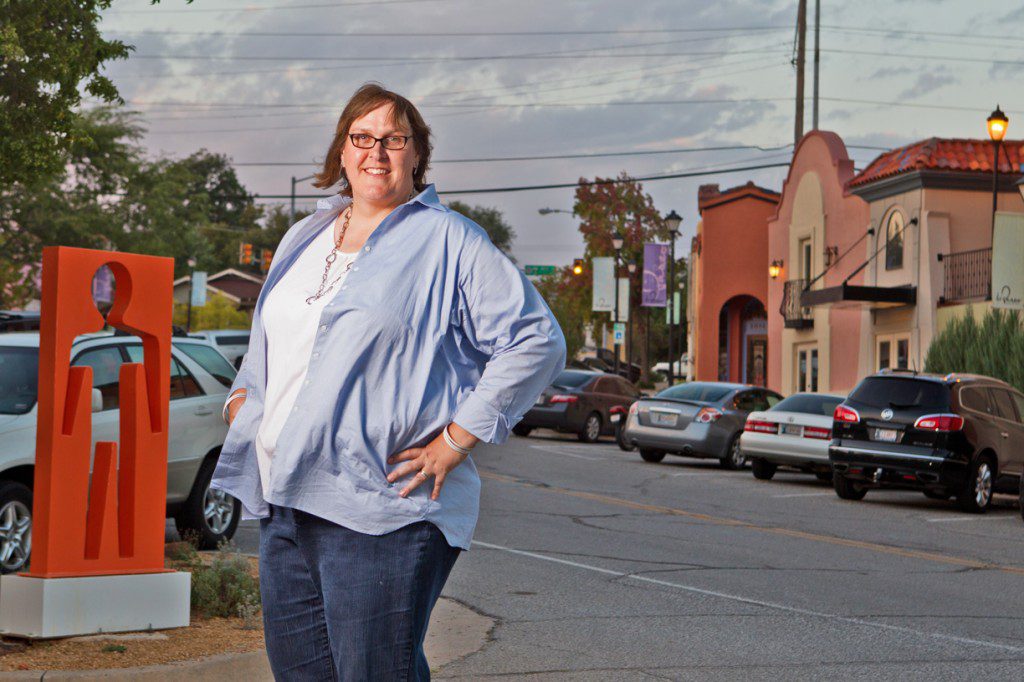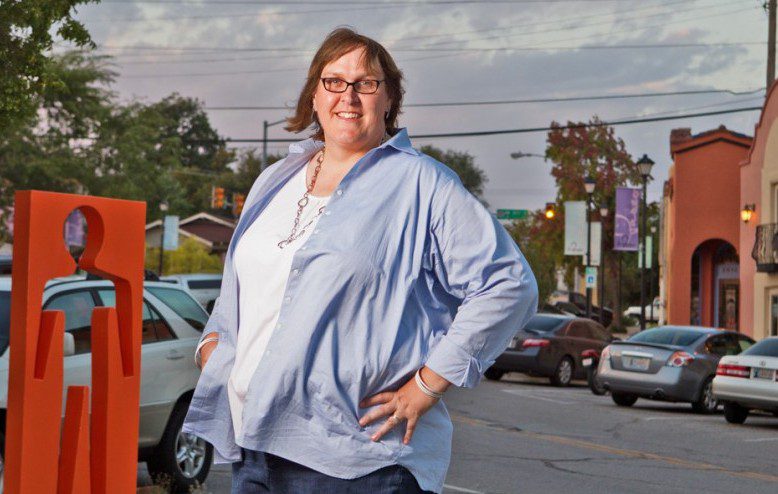
Some Oklahomans leave their state at the earliest chance. Others bemoan its perceived deficiencies but remain residents, never finding the opportunity or marshaling the willpower to move away.
Oklahoma City’s Paula Sophia does not fall into either category. After losing a Democratic primary runoff election in August for Oklahoma House District 88 by 22 votes, her outlook – on the district, on the city, on the state as a whole – is optimistic.
“Oklahoma City can be a really vibrant, new place, with vibrant, new ideas,” she says. “A hundred years ago it was that kind of place. It’s had its ups and downs, and people here are pretty resilient.”
Had she won, Sophia would have been the state’s first openly transgender elected representative. People outside of Oklahoma took notice and made tentative offers of support but could never quite square Sophia’s candidacy with prevailing assumptions about the state she wanted to represent. There were a lot of questions of viability, she says.[pullquote]“There is never, ever continuous, perpetual prosperity, but the more diverse that you are, the better off that you’ll be, and the ups and downs won’t be so dramatic,”[/pullquote]
“Those of us who live here rub up against those attitudes, but by and large, Oklahoma and Oklahoma City in particular are a lot more tolerant, a lot more appreciative of diversity than the national scene might think,” she says. “The really aggressive and abrasive conservative voices get the attention, but I think sometimes at the expense of the more moderate and progressive voices.”
The transgender angle was played up in the media during the race, but Sophia’s reaction to such headlines has always been one of modesty coupled with a steadfast aversion to being labeled a “novelty” candidate. Rather, she focuses on issues that resonate around class and economic opportunity – issues, she says, that are important to everyone. These include a living wage, access to education and collective bargaining.
Sophia also emphasizes the need for economic diversity – fostering and growing a variety of industries in the state alongside the powerful presence of oil and gas, with its inherent boom-and-bust fluctuations. Having grown up in a family that was adversely affected by the oil bust of the early 1980s (her father lost his job), Sophia remembers the statewide devastation.
“There is never, ever continuous, perpetual prosperity, but the more diverse that you are, the better off that you’ll be, and the ups and downs won’t be so dramatic,” she says.
Sophia cannot say if she plans to run again in the next election cycle, but her eyes twinkle as she considers the idea. It would depend upon a number of variables, she says, including the extent to which Jason Dunnington – who goes into the general election without an opposing Republican candidate – pursues a progressive agenda agreeable to constituents of the district.
Sophia has no plans of leaving the city she has called home for decades, over which time she worked in law enforcement for 22 years before branching into writing, teaching and politics.
“I think the really essential part of activism is to try to bloom where you’re planted,” she says, “and make a difference where you are.”























